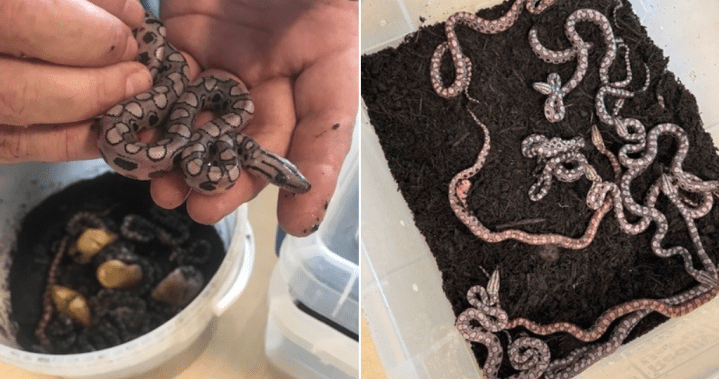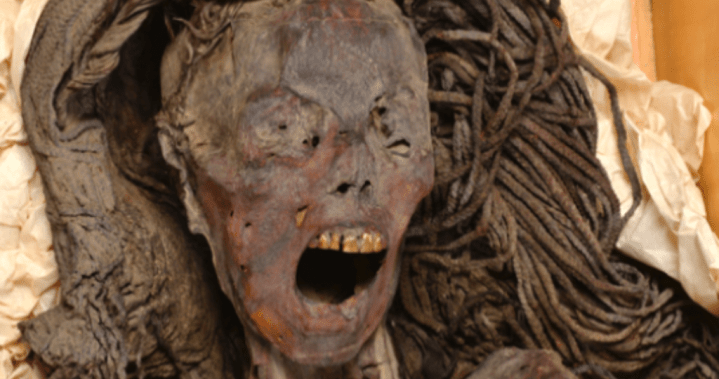All its life, Ronaldo, a Brazilian rainbow boa snake that calls a college in the U.K. home, was thought to be a boy.
That is until Ronaldo, 13, recently gave birth to 14 snakelets, despite not having contact with any other snakes for the past nine years.
The phenomenon, likened to a “virgin birth,” is called parthenogenesis, a natural form of asexual reproduction where embryos develop without fertilization.
“I’ve been breeding snakes for 50 years and I’ve never known this happen before,” Peter Quinlan, a reptile specialist at City of Portsmouth College, where Ronaldo lives, told The Independent about his shock over Ronald’s surprise babies.
“Ronaldo had been looking slightly fatter than usual, like he’d eaten a big meal, but we never thought for a moment that he, or should we say she, was pregnant.”
Breaking news from Canada and around the world
sent to your email, as it happens.
The snake, he explained, came to the college from the RSPCA nine years ago and was declared male by a vet at the time.
Parthenogenesis is common in plants and some animals, but Ronaldo’s “miracle birth” is believed to be only the third occurrence in a captive Brazilian rainbow boa anywhere in the world, The Guardian reports.
Amanda McLeod, an animal care technician at the college, said the 14 babies were discovered during a routine check of Ronaldo’s vivarium habitat by a student.
“At first we thought she must have been mistaken. We couldn’t believe our eyes,” she told The Guardian.
Quinlan explains that Ronald’s babies are “effectively” clones of their mother, despite having slightly different markings.
“It’s a fantastic opportunity for the students to learn about the development of baby snakes,” Quinlan said.
Now, the college is tasked with creating 14 new vivaria to house the babies. Once they’ve grown up a bit, they will go to new homes.
In recent memory, two animals have fallen pregnant without a male around to help them out – a stingray at an aquarium in North Carolina was discovered to be pregnant without a mate in February of this year, and last June a crocodile in captivity in Costa Rica was the first-known case of “virgin birth” for the species.
© 2024 Global News, a division of Corus Entertainment Inc.






